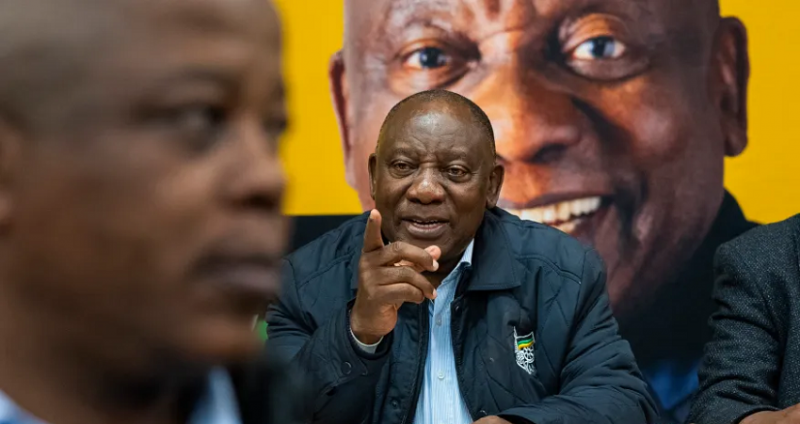
South Africa's recently elected parliament has convened to elect the nation's next president, marking a crucial moment in the wake of last month's election, which left the country teetering on the edge of political uncertainty.
During Friday's session, lawmakers are expected to reappoint President Cyril Ramaphosa, ushering in an unprecedented coalition government following his party's diminished performance in the May 29th vote. Ramaphosa, aged 71, seeks a second term, yet his African National Congress (ANC) now faces the challenge of securing support from other parties, having garnered only 40 percent of the vote, thus forfeiting its long-standing majority.
With the Democratic Alliance (DA) emerging as the second-largest party with 21 percent of the vote, its role in coalition negotiations becomes pivotal. While the ANC proposed a government of national unity and extended invitations to all 17 parliamentary parties, not all have agreed to join.
Late Thursday, the ANC announced a coalition agreement in principle with the DA and smaller parties, though details remain pending. Crucially, the agreement's finalization hinges on whether coalition partners will endorse Ramaphosa's presidency in parliament, a development the ANC hopes for but has not yet confirmed.
Ahead of the parliament's 10 am (08:00 GMT) convening, negotiations between parties, particularly the ANC and the DA, persisted overnight without a signed agreement in sight. Ramaphosa's re-election could proceed smoothly if uncontested; however, opposition nominations would trigger a vote.
Facing a Sunday deadline to solidify coalition agreements, parliament must act within 14 days of election results. Friday's session promises to be protracted, commencing with the election of a speaker and deputy speaker before the presidential vote.
South Africa's political landscape hasn't encountered such uncertainty since the ANC's historic victory in 1994, ending apartheid. Traditionally, ANC dominance in parliament made presidential elections ceremonial, with every leader since Nelson Mandela originating from the party.
Yet, Friday's proceedings won't be without obstacles. The MK Party, led by former ANC leader Jacob Zuma, declared a boycott, though this won't impede voting procedures as per constitutional quorum requirements.
Moreover, the parliament meets in an unconventional venue following the 2022 fire that ravaged the National Assembly building in Cape Town, relocating the presidential selection process to a nearby conference center.
In conclusion, South Africa navigates a pivotal moment in its democratic journey, with parliamentary deliberations shaping the nation's political trajectory amid coalition complexities and historical precedent.
South African Cabinet Minister Arrested Over Bribery Allegations: What's Next?
South Africa Election 2024: ANC Faces Challenges as First Results Announced